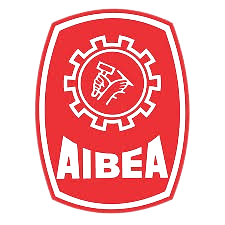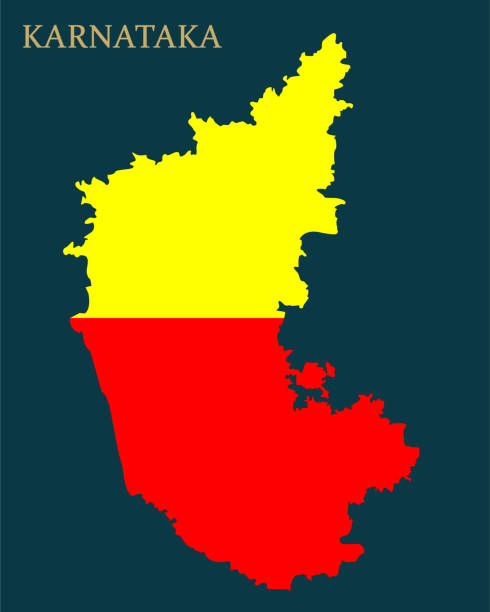Bank Of Baroda Workers' Organisation
BANK OF BARODA WORKERS’ ORGANISATION (Regd) KARNATAKA (Affiliated to AIBOBECC & AIBEA)
About Us
OUR STORY
Formation of BOBWO (Kar) – Background
Bank of Baroda Workers’ Organization (BOBWO, Karnataka) was formed on 30.06.2019 vide decision of Central Committee of Joint Co-ordination Committee (VBWO, DBEU) in its meeting held at Bengaluru on 30th June 2019 as decided and directed by AIBEA.
The formation of BOBWO (Kar) was necessitated because of merger of Vijaya Bank and Dena Bank, two Public Sector Banks on 01.04.2019 on account of Government of India decision in this regard. Till then Vijaya Bank Workers’ Organisation in Vijaya Bank and Dena Bank Employees’ Union, Karnataka in Dena Bank were operating in the respective Banks. Both these unions were affiliated to All India Bank Employees’ Association as well as their respective All India Organisations.
The Vijaya Bank Workers’ Organisation was an unitary organization having Regional Committees in accordance with administrative set up of erstwhile Vijaya Bank. However, on merger the organizational structure of this Union was forced to undergo a change as a Federal set up in tune with the organizational set up of AIBOBECC, an existing Union operating in Bank of Baroda which was affiliated to AIBEA.
In the above background the BOBWO (Kar) was formed along with the membership of Dena Bank Employees’ Union, Karnataka which got merged with BOBWO (Kar). To that extent the Vijaya Bank Workers’ Organisation as well as Dena Bank Employees’ Union Karnataka are non-existing entity at present.
On formation of BOBWO (Kar) the membership of the Union is consisting of the members affiliated to AIBEA Union in Bank of Baroda, Vijaya Bank and Dena Bank in the state of Karnataka. The Union has been functioning effectively by mobilizing more and more members and also attending to various representations, grievances of the members directly or through the periodical structured meetings being held at all Regional Offices and Zonal Offices in Karnataka as per the guidance, guidelines from the Central Office of the Bank.
BOBWO (Kar) is affiliated to AIBOBECC & AIBEA. It is having majority of membership in Karnataka. At all India level also AIBOBECC is a Majority Representative Union and Sole Bargaining Agent of Award Staff working in the Bank.
AIBEA
All India Bank Employees Association (AIBEA) is the oldest and largest national trade union of bank employees in India, was founded in 1946 on the 20th of April in Kolkata.
Founded : 20 April 1946 (77 years ago)
Headquarters : “Prabhat Nivas” Regn. No.2037 Singapore Plaza, 164, Linghi Chetty
Street, Chennai 600001, India
Key people : C. H. Venkatachalam (General Secretary)
Rajen Nagar (President)
Website : aibea.in
BACKGROUND
The beginning of the labour upsurge against oppression and exploitation goes back to the second half of 19th century, with the emergence of class of casual general labour during British Raj in India. The self-sufficient Village economy was shattered with no new structures in place, creating impoverished peasantry and landless labour force.
The dumping of cheap industrial goods resulting in millions of artisans, spinners, weavers, craftsmen, smelters, smiths, potters, etc., who could no more live on agriculture also turned into landless labourers. This led to widespread famines in India through the period from 1850 to 1890 resulting in deaths of several lakhs and also reducing millions as beggars
The anguish of impoverished masses, ruined peasantry was up in revolt which resulted in several movements even though crushed by the rulers. This background did help the 1857 revolt by princely states and the common masses against the disempowering policies of British rule.
Till this time trade unionism was not known to workers, they were reacting to extreme exploitative working conditions and very low wages. They formed themselves as ‘jamaats’ which were based more on social caste basis in order to fight back oppression of employers. This was beginning of organization by the workers even though not the trade unions in
essence.
From 1905 onwards there was notable advance in the working class actions and it was more and more closing its ranks with the advance of freedom struggle in the country.
A strike took place in Bombay against extension of working hours. The printing press workers in Calcutta also struck work. Another great event of the period was strike by industrial workers of Bombay from July 24 to 28, 1908, in protest against the pronouncement of judgment sentencing six years imprisonment to freedom fighter Bal Gangadhar Tilak. There were street fights between workers and police and military of British rulers.
Lenin wrote about this strike, “The Indian proletariat has already matured sufficiently to wage a mass struggle, class conscious and political, and that being the case, Anglo- Russianmethods in India are played out”.
This also needs mention here that the Factory Act established in 1881, was promulgated in the background of competition being provided to British Companies by goods produced in India due to availability of cheap labour and long working hours.
Even then it was only for the industry where competition to foreign industrial goods was posed. It was amended several times within a short period of few years. It was blessing in disguise as regards working hours and weekly holiday etc. but the wages and working conditions continued to be pathetic. In seasonal industry no changes were brought about as it did not impact the competitiveness to British Industry.
The October Revolution in 1917 in Russia during First World War was a great impetus for Indian labour movement as the working class along with peasantry captured power first time in the history of mankind.
In 1918 great strike in cotton mills of Bombay started and soon it spread to other areas with 1,25,000 workers participating by January 1919. The strike against Rowlatt Act had great impact on the national struggle itself. In the first half of 1920, there were 200 strikes involving 15 lakh workers. The demands were for 10 hrs working and dearness allowance. Out of 97 strikes during July to December 1920, only 31 ended in failure. In all other cases there were successes to some extent.
It was in this heroic background that the preparations began on July 16, 1920, when a convention was held in Bombay which decided “to hold All India Trade Union Congress in Bombay”. A reception committee with 500 members with Joseph Baptista as chairperson
was formed.

